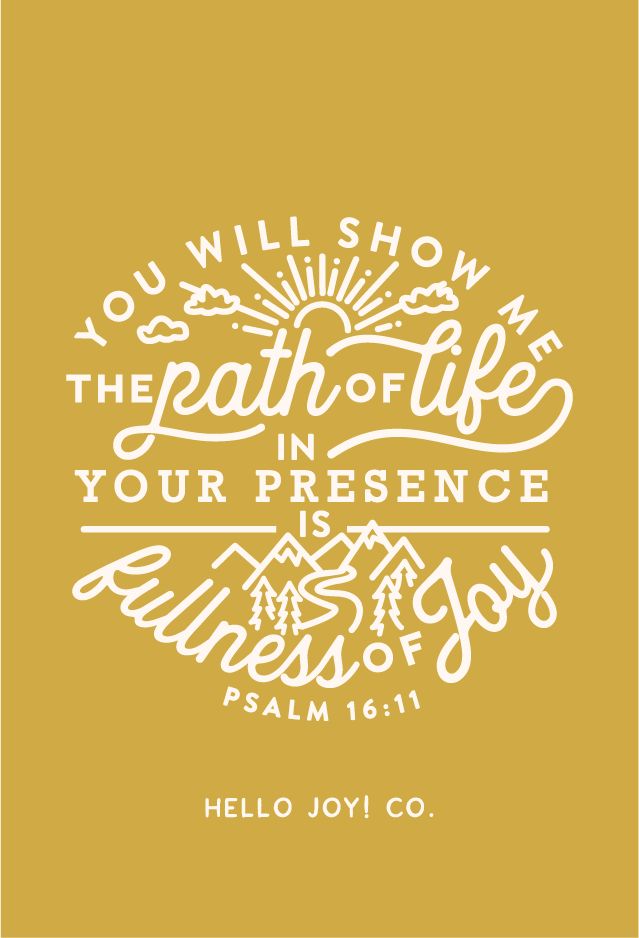THE SEED
”You will show me the path of life; in Your presence is fullness of joy…“ Ps 16:11
In reflecting on the true blessings that bring joy into our lives as children of God, we find inspiration in Psalm 16:11, which says, the Lord has made known to us the path of life and in God’s presence, we have the fullness of joy and at His right hand, we also have pleasures forevermore. God has indeed rained on us the blessings that go beyond material wealth. True joy comes from the divine presence of God. The joy that God gives is a lasting and fulfilling joy that surpasses earthly challenges. It is a joy that blossoms in the heart, rooted in the completion of God’s love and grace towards us. Such joy is also experienced in the gift of life given us, the warmth of relationships He has blessed us with and the moments of grace that we enjoy often. All of these and more are God’s intentional blessings to keep His joy in our hearts. Our joy is not hanging on momentary events of life but it is held in the unchanging nature of our Lord. Through prayer, thankfulness and a heart tuned to God’s presence, we can always experience a joy that goes beyond the challenges of life. Our Lord Jesus told the seventy disciples when they came back from their ministerial journey that their joy should not be attached to their victory over demonic encounters, rather they should rejoice because their names are written in the Book of Life with the Father.
BIBLE READINGS: Like 10:17-21
PRAYER: May the blessings of God that bring joy be abundant in my life, in Jesus’ name. Amen
IBUKUN ALAYO
IRUGBIN NAA
“Ìwọ yóò fi ipa ọ̀nà ìyè hàn mí; niwaju Re ni ekunrere ayo wa, Ní ọwo ọ̀tún rẹ, adùn wà títí láé.” Orin Dáfídì 16:11
Ní ṣíṣàṣàrò lórí àwọn ìbùkún tòóto tí ń mú ayọ̀ wá sínú ìgbésí ayé wa gege bí ọmọ Ọlorun, a rí ìmísí nínú Sáàmù 16:11, tí ó sọ pé, Olúwa ti sọ ọ̀nà ìyè di mímọ̀ fún wa, àti níwájú Ọlorun, a ní ẹ̀kúnrere ayo ati l‘owo otun Re A tun ni igbadun ayeraye.
Nitootọ Ọlọrun ti rọ̀jò ibukun ti o tayo orọ̀ aye. Ayọ otitọ wa lati iwaju Ọlọrun. Ayọ̀ tí Ọlorun ń fúnni je ayọ̀ pípe títí tí ó sì ju àwọn ìpèníjà ti ayé lọ. O jẹ ayọ ti o n dagba ninu ọkan, ti o fidimule ninu ifẹ ati ore-ọfẹ Ọlọrun si wa. Irú ayọ̀ beẹ̀ tún ní ìrírí nínú ẹ̀bùn ìyè tí a fifún wa, adun ìbáṣepọ̀ tí Ó ti bùkún wa àti àwọn àkókò oore-ọ̀fe tí a ń gbádùn lopọ̀ ìgbà. Gbogbo ìwọ̀nyí àti jù be lọ jẹ́ àwọn ìbùkún àròjinlẹ̀ Ọlorun láti pa ayọ̀ Rẹ̀ mo nínú ọkàn wa. Ayọ wa kii ṣe lori awọn iṣẹlẹ igba diẹ ti igbesi aye ṣugbọn o waye ninu Oluwa wa ti ko yipada. Nipasẹ adura, idupẹ ati ọkan ti a Fi si waju Ọlọrun, a le ni iriri ayọ nigbagbogbo ti o kọja awọn idojuko ti aye. Oluwa wa Jesu sọ fun awọn ãdọrin awọn ọmọ-ẹhin nigba ti wọn pada lati irin-ajo iṣẹ iranse wọn pe ayọ wọn ko yẹ ki o somọ iṣẹgun wọn lori idojuko ẹmi-eṣu, dipo ki wọn yọ nitori pe a kọ orukọ wọn sinu Iwe iye pẹlu Baba.
BIBELI KIKA: Luke 10:17-21
ADURA: Ki ibukun Olorun ti o nmu ayo wa di pupo ninu aye mi, ni oruko Jesu. Amin.
